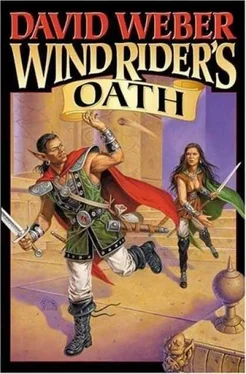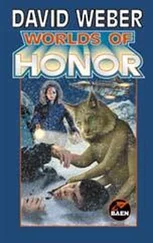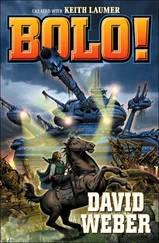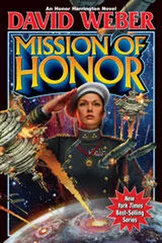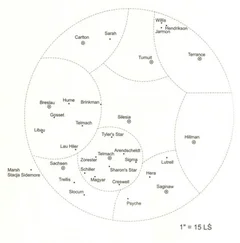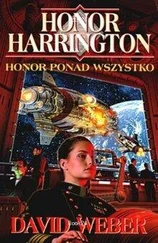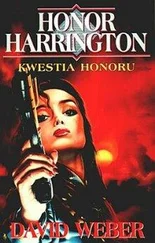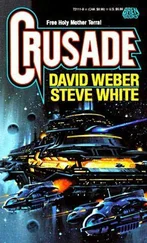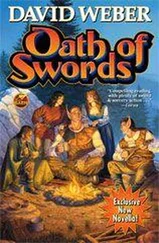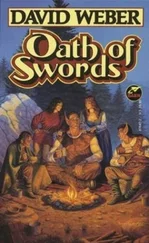" . . . and the aforesaid boundary shall run from the east side of Stelham's Rock to the corner of Haymar's holding, where it shall turn south at the boundary stone and run two thousand yards across the River Renha to the boundary stone of Thaman Bridlemaker, which shall be the marker for the boundary of the Lord of Lorham."
That was the exact language from the original grant at Kalatha. But the language in the document Salthan had just laid before her said-
" . . . and the aforesaid boundary shall run from the east side of Stelham's Rock to the corner of Haymar's holding, where it shall turn south at the boundary stone and run one thousand yards to the north side of the River Renha, the agreed-upon boundary of the Lord of Lorham."
It wasn't a minor ambiguity after all, she thought. It was a flat contradiction. If the document before her was accurate, then Trisu was completely correct-the disputed gristmill on the southern bank of the Renha was on his property and always had been. For that matter, Kalatha's claim to undisputed control of the river's water rights was also nonexistent, since the river would lie entirely within Trisu's boundaries, not Kalatha's. But how could it be accurate? Surely the original grant must supersede any copy in the event of differences between them, and the one before her could only represent a bizarre mistake.
Yet that was preposterous. True, it was a copy, not the original, yet it was scarcely likely that the same scribe who'd written out both documents would have made such a mistake. And it was even less likely that such an error could have been missed in the intense scrutiny all copies of the original grant must have received by those party to it.
Unless one copy was a deliberate forgery, of course . . . .
But how could that be the case? If this was a counterfeit, it was a remarkably good one. Indeed, it was so good she couldn't believe anyone in Lorham could have produced it in the first place. However good Salthan might be as a librarian, turning out such a flawless false copy of a document over two centuries old must be well beyond his capabilities. So if a forgery had been produced, who had produced it, and when?
She carefully hid a grimace at the thought, wondering how in the world anyone would ever be able to answer those questions. But answering them could wait at least until she'd determined that they were the only ones which required answers.
She considered her options for a few more seconds, then looked up at Salthan with a painstakingly neutral expression.
"Thank you," she said, tapping the scroll very carefully with a fingertip. "This is exactly the section of Lord Kellos' grant I wanted to see. Now, if you please, Lord Trisu also mentioned that you have a copy of King Gartha's proclamation, as well."
"Yes, we do, Lady," Salthan replied. "In fact, it's in rather more readable condition than Kellos' grant. Let me get it for you."
"If you would," she requested, and leafed through her other notes for the sections of the war maid charter relevant to the other points in dispute between Trisu and his neighbors that she'd copied in Kalatha.
Salthan opened the proper case and unrolled a second scroll, just as carefully as he'd unrolled the first one. He was right; this document was much more legible than the Kalatha land grant, and Kaeritha bent over it, eyes searching for the sections she needed.
She read through them one by one, comparing the language before her to that she had copied in Kalatha, and despite all of her formidable self-control, her frown grew more and more intense as she worked her way through them. Then she sat back and rubbed the tip of her nose, wondering if she looked as perplexed as she thought she did.
Well, she thought, it just may be that I'm beginning to understand yet another reason He sent me to deal with this instead of Bahzell or Vaijon. He does have a way of choosing His tools to fit the problem . . . even when we poor tools don't have a clue why it has to be us. Or exactly where we're supposed to go next.
"I appreciate your assistance, Sir Salthan," she said after a moment. "And I think I may be beginning to understand why your and your lord's interpretation of the documents is so fundamentally different from that of Mayor Yalith. There does seem to be a degree of . . . discrepancy now that I've had a chance to lay my notes side-by-side with your copy. I don't pretend to understand where it came from, but it's obvious that until it's resolved, it will be impossible for anyone to rule definitively in this case."
"I couldn't agree more, Milady," Salthan said soberly. Trisu's magistrate was sitting across the table from her now, his blue-gray eyes intent . . . and troubled. "Unlike you, I haven't had the opportunity to compare the documents to one another, but I know these copies have been here in this library from the day they were first penned. Under the circumstances, I think My Lord and I have no alternative but to believe they're accurate, and, unlike his late father, Lord Trisu is not the sort of man to tolerate the infringement of his rights or prerogatives. Which is why, after he'd asked me to research the language and had seen the relevant passages for himself, he began to press Kalatha over these matters."
"No doubt you're right," Kaeritha said. "On the other hand, Sir Salthan, I can't quite escape the suspicion that he's a little more irritated over the apparent violation of his rights or prerogatives when the suspected violators are war maids."
"Probably-no, certainly-you're right, Dame Kaeritha. And he's not alone in that regard, either. We've had other disputes with Kalatha over the years. Indeed, when Lord Trisu's Uncle Saeth-his father's younger brother; Lord Triahm's father-was killed in a hunting accident some ten years ago, there were those who claimed to have evidence that it was no accident at all. That the war maids arranged it because of his outspoken condemnation of their chosen way of life. I personally always found that a bit hard to swallow, but the fact that it could gain such wide credence clearly suggests that Lord Trisu is far from alone in his dislike for them. Yet even if he were, would that truly have any bearing on whether or not our interpretation is correct in the eyes of the law?"
"No," she said, although she was guiltily aware that part of her wished it did. On the other hand, champions of Tomanâk were still mere mortals. They had their prejudices and opinions, just like anyone else. But they also had a unique responsibility to recognize that they did and to set those prejudices aside rather than allow them to influence their decisions or actions.
"Are you familiar, Sir Salthan," she continued after a moment, "with the sorts of abilities Tomanâk bestows upon His champions when he accepts Sword Oath from them?"
"I beg your pardon?" Salthan blinked, clearly surprised by the apparent non sequitur . Then he shrugged.
"I'm scarcely 'familiar' with them, Milady. I doubt very many people are, really. I've done some reading, of course. And to be honest, I did a little more research when Lord Trisu told me a champion had come to visit us. Our library, unfortunately, isn't especially well stocked with the references I needed. The best anything I had could do was to tell me that Tomanâk is less . . . consistent from champion to champion than many of the other Gods of Light are."
" 'Less consistent,' " Kaeritha murmured, and smiled. "That may be as concisely as I've ever heard it put, Sir Salthan. There are times when I wish He was more like, oh, Toragan or Torframos. Or Lillinara, for that matter. Their champions all seem to get approximately the same abilities, in greater or lesser measure. But Tomanâk prefers to gift each of His champions with individual abilities. For the most part, they seem to mesh with abilities or talents we already had before we heard His call, but sometimes no one has any idea why a particular champion received a specific ability. Until, of course, the day comes when he-or she- needs that ability."
Читать дальше
